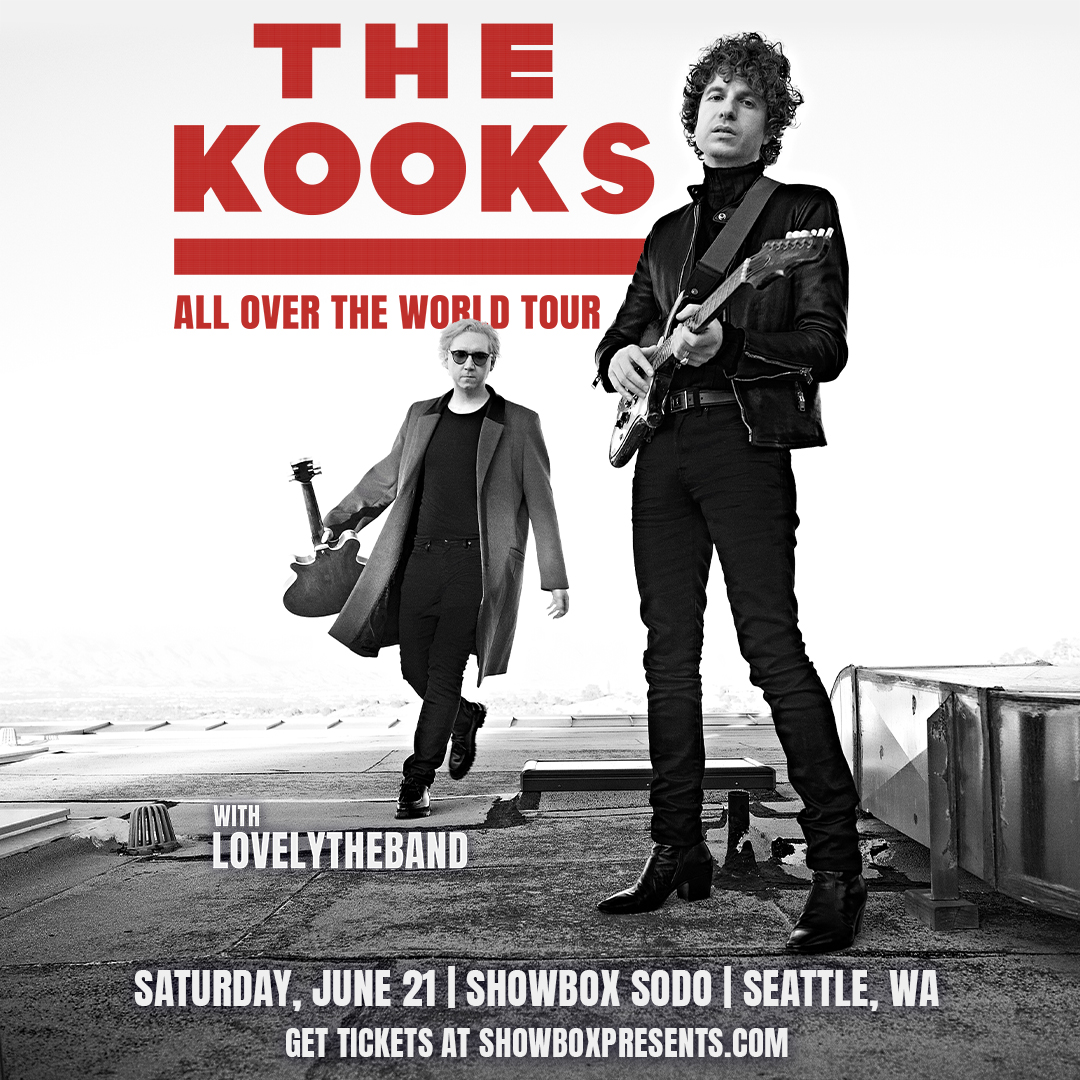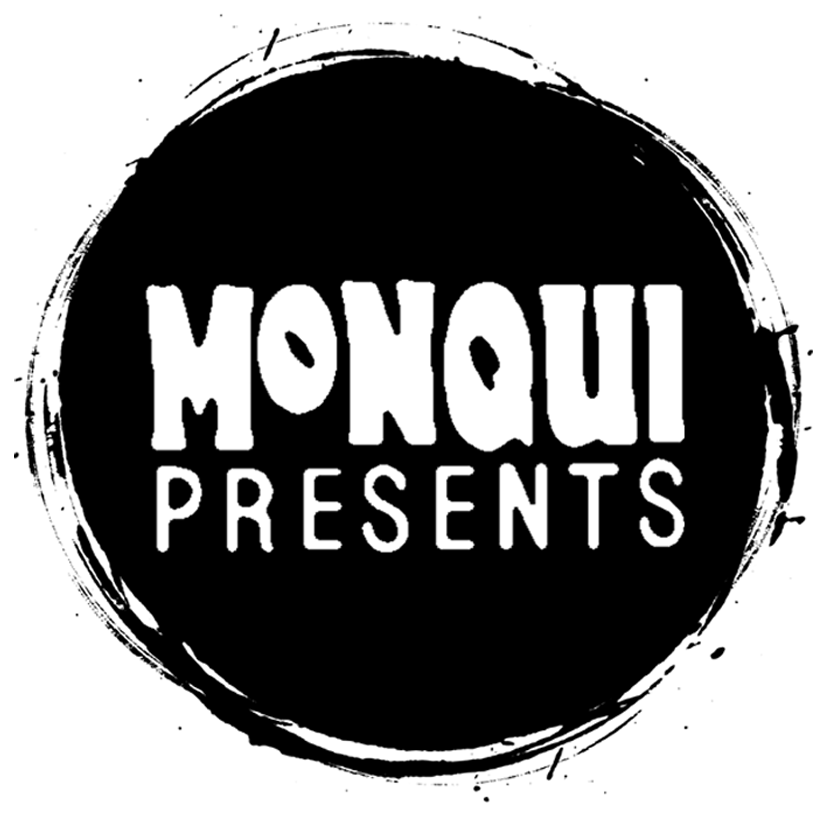
The Kooks – All Over The World Tour
With Special Guest lovelytheband
Doors: 7pm
About The Kooks:
“I’ve been thinking a lot about debutism. Why do we love debut albums?” reflects Luke Pritchard as The Kooks prepare to release their seventh album, Never Know. Eighteen years after their own debut Inside In/Inside Out, this record feels like a return to the beginning. Pritchard’s goal was simple: “The whole thing was to just forget that the past had happened,” he says. But to truly move forward, they had to reflect: “What kind of music do we want to make, and how do we make it feel natural?”
The Kooks, whose 2006 debut sold over 2 million copies, have unexpectedly found themselves beloved by a new generation. While their original fans remain, they’ve layered on a fervent Gen Z following, headlining festivals and selling out shows worldwide. Social media has made them a generations’ new favourite band again, introducing their unmistakable Brit-pop joy to fresh ears.
However, the road from global fame to this new renaissance has taken much blood, sweat and fears. “You’re always trying to renovate your band and re-inspire yourself because you don’t want to fall into a pattern or formula,” Pritchard explains. Together with Hugh Harris, the band’s core duo has mastered the art of reinvention.
Their debut was a defining moment for indie music in the 2000s, their first releases set the sound of a moment in time. There are few songs as defining of the 2000s as ‘Naïve’, but the band were never a one-hit wonder – their follow-up record, Konk, hit number one as one of four top 10 albums. The Kooks never stopped evolving, transitioning from indie rock to synthpop and krautrock influences. Over time, they’ve integrated wide-ranging inspirations—Harris’ love of soul and opera, alongside Pritchard’s classic influences like Bob Dylan and The Rolling Stones.
After years of essentially painting over the cracks through internal shifts and lineup changes, the decision to make Never Know marked a true rebuilding from the ground up. Pritchard’s reflections on debutism led him to a breakthrough: “It’s not about going back to the first album’s sound but to the roots of our influences and asking, ‘What is the identity of this band?’” It was about recapturing the debut’s energy— friends in a room buzzing with potential, pulling things together quickly and without the time or the money to overthink it.
Pritchard kept the process secret, even from the band. He presented the new songs as simple demos. The Kooks (Harris, Alexis Nunez, Jonathan Harvey) and a selection of invited musicians were told that they were just figuring stuff out, messing about, like Pritchard and Harris used to in kitchens at student house parties.
“Everyone’s defences were down,” he says, and Harris agrees, describing the process as “complete and utter ease.” He thought back on times where they’d spent endless time preparing and wasting fortunes on fancy studios, only for the process to feel stagnant or formulaic. Reminiscing about the albums that the pair first bonded over, or the ones that got him into music, he says, “My favourite records just weren’t made like that”. Instead, they were made like this; powered by raw energy.
In Pritchard, that manifests in his most interesting, yet uncomplicated songs to date. The album’s lyricism is coloured by spontaneity. There are witty one-liners and inside jokes, references to his children through sweet nicknames (on ‘Sunny Baby’), and big emotions (‘China Town’). It is a return to the ‘say-it-how-you-see-it’ fun of their earlier works as the band pulls listeners back into The Kooks’ world. The album’s title track ‘Never Know’ shows that clearly – perfect indie instrumentals of guitars, synths and driving drums, matched by lyrics that just pour out. The band resisted the urge, or outright refused, to overthink. ‘Sunny Baby’ is the proof – described as a moment where they were “flying our own flag.” Also with ‘All Over The World’, that catchy, infectious power they’ve always had is on bright and exciting display.
The result is a fresh, unfiltered take on their sound. Harris noticed his additions feeling more representative of himself than they have for a while. “I’ve been tuning back into a lot of classical music and funnelling my interest in that world into the guitar,” he says, adding that on this album, “I feel like each line is loaded with real-world of motifs,” before laughing, calling himself pretentious and admitting, “I thought Puccini was cool before I heard Jimi Hendrix.”
The Kooks’ journey began at BIMM when Harris bumped into an old school classmate on his first day at the music college – it was Pritchard. “He was playing ‘Sofa Song’ (later on that debut record). I really, really, genuinely loved the song and I wanted to learn it,” he recalls.
From that moment, their creative partnership was born – Pritchard wrote the bones of the songs, while Harris added flair. Despite early tensions, the duo’s chemistry remained strong, even as they navigated sudden fame in the 2000s indie scene.
Pritchard remembers of those early days, “I knew it was amazing. We had this kind of crazy chemistry. But it also came with tension, a lot of ego battles and tension.” It’s an atmosphere that Harris attests to, as he describes the original line-up of the band, built of four musicians each with their own strong identity and desire for control, as “a battleground for songwriting”, laughing as he confessed, “I kind of George Harrison-ed my way through that phase, that’s why I’m still here.”
But really, Pritchard and Harris are more Lennon and McCartney. When the band began, they were teenagers who navigated sudden fame together as the booming new indie scene picked them out as its darlings. “Suddenly you’re in this new world where you’re hanging out with the Gallaghers, or you’ve got Mick Jagger coming to your show and Robbie Williams saying you’re the next generation that’s gonna save guitar music,” Pritchard said. But they were also just two kids who learnt to write music together. Their creative language is a shared one, even if in breaking point moments it felt like the opposite.
At one point, they even broke up—though it didn’t last long. “We sat in a pub, broke up the band, got everything off our chests, and then got back together the next week,” Harris recalls with a laugh, highlighting their deep, brotherly connection.
Now, The Kooks have returned to their foundation — a shared vision of creating joyful, well-crafted pop music. Harris sums it up: “At the heart of it, we both want the same thing, and that’s very powerful.” For Pritchard, the album’s relaxed, unpolished feel was key to their revival: “I really feel like we’ve got our swagger back by letting things be and not making everything too perfect.”






